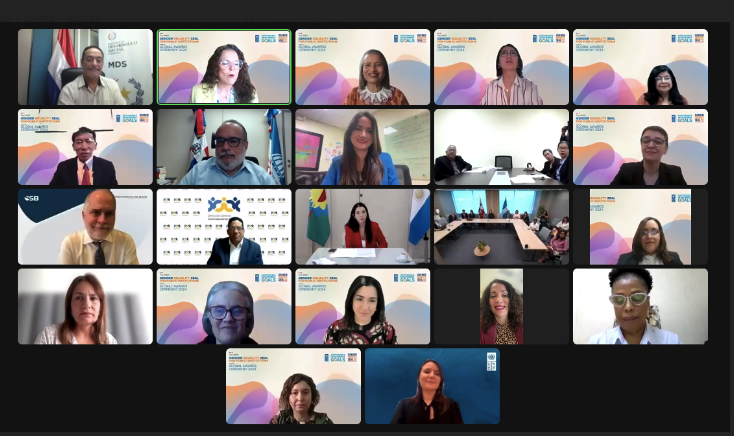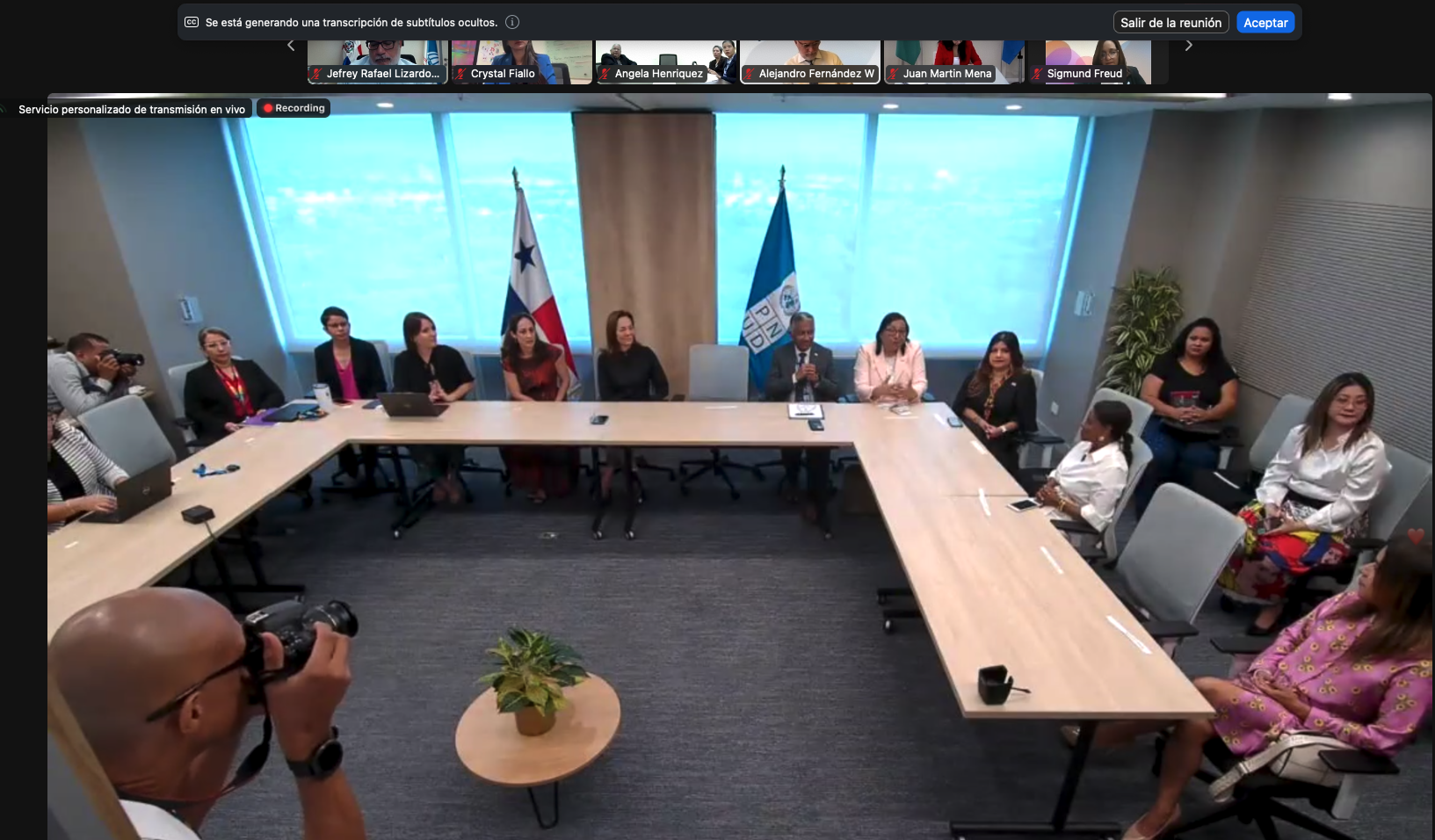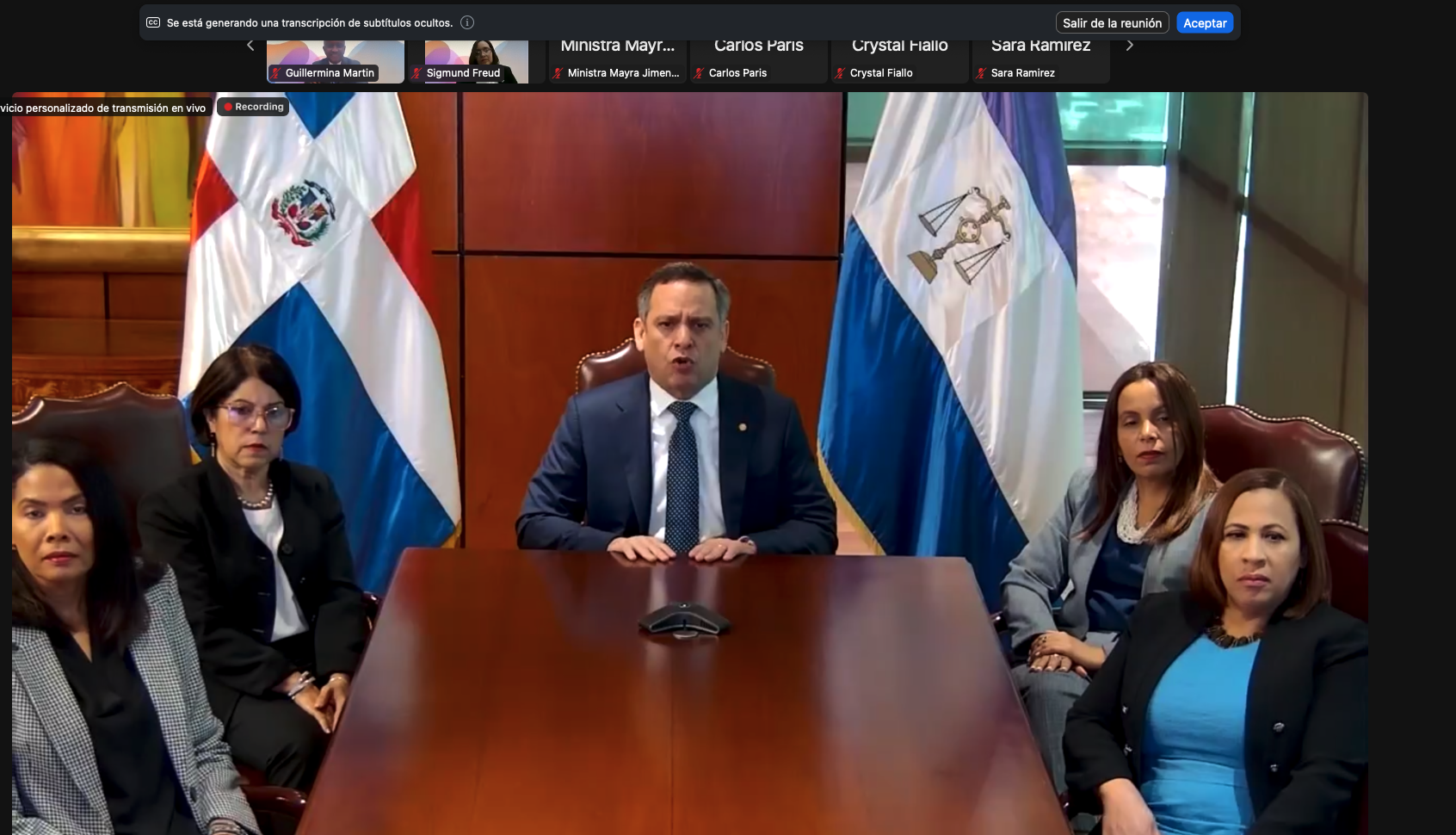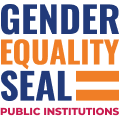
In a landmark event within the 68th Session of the Commission on the Status of Women (CSW68), the United Nations Development Programme (UNDP) marked a significant milestone on March 21st with its first ever Gender Equality Seal Global Awarding Ceremony. This virtual celebration recognized the outstanding efforts of 18 public institutions worldwide in implementing reforms aimed at advancing gender equality within their administrative frameworks and policies.
The Inaugural Gender Equality Seal ceremony celebrated remarkable achievements in promoting gender equality within public institutions. With 481 colleagues registered, and 344 attendees representing 58 nations, from diverse backgrounds, the event underscored the global commitment to this cause.
Livestreamed on YouTube, the ceremony showcased the success of institutions, particularly in Latin America and the Caribbean, in integrating gender equality practices. By emphasizing structural changes and recognizing achievements at Bronze, Silver, and Gold levels, the ceremony highlighted the importance of institutional commitment. Moreover, it called upon public institutions worldwide to join this initiative and contribute to systemic change. Through collective celebration and acknowledgment, the event reaffirmed the significance of gender equality in fostering responsive and accountable public policies and services.
The UNDP Gender Equality Seal for Public Institutions is a groundbreaking initiative, as it serves as a comprehensive tool for public administration reform. Its primary objective is to foster a new era of gender-responsive policymaking, eradicating discriminatory norms while enhancing the skills and capacities of public institutions to deliver equitable public policies and services. This voluntary program is tailored specifically for public institutions committed to advancing gender equality and women’s empowerment within their operational mandates.
At the ceremony, public institutions from Argentina, the Dominican Republic, Panama, and Paraguay were honored with Gold, Silver, and Bronze Seal certifications for their notable achievements in advancing public administration reforms towards gender equality. These achievements spanned various sectors including science and technology, judiciary, banking, public management, elections, labor, and social development. Additionally, two municipalities from Panama and the Dominican Republic received recognition for mainstreaming gender equality in local strategic planning and public services.
The Gender Equality Seal supports institutions to put gender equality commitments into practice. The Seal is an in-depth public administration reform process that does not promote quick fixes. Instead, it offers a full set of tools and guidance for change that is systemic, sustainable and rooted in the institutions’ own commitment and ownership.
Haoliang XU, UNDP Associate Administrator.
Among the notable awardees were the Ministry of Justice and Human Rights of Buenos Aires Province in Argentina, which in the last four years achieved a 20% reduction in reoffending by men prosecuted for gender violence and succeeded in increasing to 50% the number of women convicted of minor crimes with children under 5 that were placed under house arrest instead of serving in prison, with clear positive impacts in the lives of both the children and the women.
Likewise in Paraguay, the Supreme Court of Justice achieved the Silver Seal, improving the application of human rights principles in judicial decisions related to gender-based violence cases. This resulted in a substantial 250% increase in convictions for femicide.
In the Dominican Republic, the Central Electoral Board contributed to a significant increase in women’s participation in municipal electoral boards, from 35% (2019-2022) to 44% (2022-2026).
In Panama, the National Secretariat of Science and Technology (SENACYT) in Panama successfully transitioned from a Silver Seal received in its first round in the Seal in 2019 to Gold Seal for spearheading the approval of the National Policy for Equality in Science, Technology, and Innovation 2040.

The institutions recognized at the Bronze level were the General Directorate of Public-Private Partnerships and the Santo Domingo East City Council in the Dominican Republic; the Electoral Tribunal, the Municipality of Panama, and the National Institute of Vocational Training and Training for Human Development (INADEH) in Panama; and the Ministry of Social Development in Paraguay.
The Supreme Court of Justice of Paraguay; the Ministry of Labor and Labor Development of Panama,; the Dominican Telecommunications Institute (INDOTEL), SUPÉRATE and the Superintendency of Banks in the Dominican Republic; and the Banco of the Nation of Argentina obtained the Silver level.
Awarded the highest level of Gold were the Ministry of Justice and Human Rights of the Province of Buenos Aires, Argentina; the Central Electoral Board, the General Directorate of Public Procurement, the Judiciary Power and the Single System of Beneficiaries (SIUBEN) in the Dominican Republic; and the National Secretariat of Science, Technology and Innovation SENACYT of Panama.
Our commitment is clear: to work tirelessly to close the gender gap and promote the dignity and freedom of all people. We are confident that we can build a more just and equitable future for our society,” he said.
Luis Henry Molina, Presiding Judge of the Supreme Court of Justice and the Judicial Power of Dominican Republic.

Earning the Gender Equality Seal involves commitment and hard work for these institutions, as it requires a rigorous process, including formal expression of interest, self-assessment, action plan development, and final assessment, typically spanning 1.5 to 3 years. UNDP, often with the engagement of national gender institutions, provides support throughout, offering capacity building, tailored tools, technical advisory, and peer-to-peer exchange through thematic communities of practice.
Currently, close to 100 public institutions across 30 countries in Latin America and the Caribbean, Africa, the Balkans, and Central and Southeast Asia are engaged in the UNDP Gender Equality Seal program. Since its inception in 2021, the program has benefited over 224,000 public officers, strengthening skills, capacities, and working environments, and paving the way for a more equitable future.
We have heard about how your institutions have established gender equality goals in strategic planning, or systems for sex disaggregated data, or setting up a gender architecture, and building capacities of civil servants in gender equality. We are impressed by your efforts to make public administration better grounded and closer to citizens’ needs and making it more accountable to women’s and feminist organizations.
Giuliana Natale, acting Deputy Permanent Representative of Canada to the United Nations
The UNDP’s Gender Equality Seal program stands as a beacon of progress in the global pursuit of gender equality, recognizing and amplifying the efforts of public institutions committed to creating inclusive and gender-responsive societies. As these institutions continue their journey towards equality, their achievements serve as inspiration and catalysts for broader systemic change on a global scale.
About UNDP
UNDP is the leading United Nations organization fighting to end the injustice of poverty, inequality and climate change. Working with our broad network of experts and partners in 170 countries, we help nations to build integrated, lasting solutions for people and planet.
For more information, visit the Gender Equality Seal for Public Institutions webpage. (LINK –https://www.gendersealpublicinstitutions.org/the-seal/ )
For more information:
UNDP: Ana Landa Ugarte. Gender Equality Seal Global Manager. [email protected]










